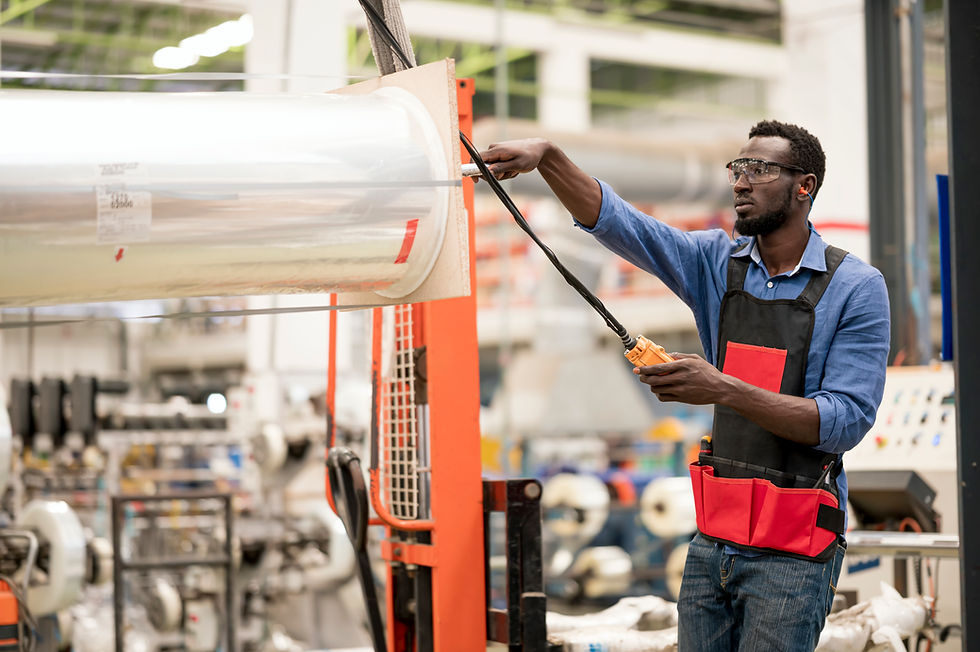How Companies Are Cleaning Up The Ocean And Growing The Plastics Industry
- SPS International

- Apr 14, 2022
- 3 min read
Updated: May 18, 2023
Ahead of the G7 summit in Cornwall in 2021, major packaging producers and environmental charities called to agree a global treaty on plastic to tackle the global waste plastics.
Organisations like Nestle, Aldi, Iceland and the Co-op penned an open letter that supported a binding worldwide treaty to tackle plastic pollution.

However, the G7 summit has now been branded a ‘colossal failure’ by critics and campaigners by failing to give a detailed plan or target date to move away from coal plants without carbon capture technology.
Despite local protests, plastic waste and ocean pollution were not at the forefront of the headlines from the summit but many believe it should have been.
Recycling plastic waste from domestic or industrial use has fed back into the plastic industry supply chain for many years now, however more and more companies are gathering their plastic waste from the ocean.
Ocean waste is now affecting more marine wildlife than ever, with a study by Oceana, the world’s largest ocean conservation group, in November 2020 showing 1,800 animals hurt by plastic since 2009, around 88% of those animals are listed as threatened or endangered under the US Endangered Species Act.
Not only that but plastic pollution is having a greater economical impact than many think. An estimated $6-12 billion is lost from the plastic’s impact on tourism, fisheries and aquaculture, and (governmental) cleanups.
Many organisations now are dedicated to cleaning up our oceans around the world and when they do the plastic waste they collect is reintroduced into the supply chain. As an increasing number of organisations focus on the circular economy in the plastics industry, it demonstrates the profitability of recycling ocean waste in both economical and ethical terms.
In this blog, we highlight 5 major players that are making waves within the ocean plastic industry and why we think their organisation is worth shouting about.
THE OCEAN CLEANUP
The Ocean Cleanup intercept plastic in rivers and in plastic hotspots in the oceans and collect plastic to repurpose with products. As a non-profit organisation, part of their funding strategy is to use the collected waste plastic to create a pair of sunglasses which can be bought by contributing €199 to The Ocean Cleanup organisation.
ICHTHION
Run out of Imperial College London, ICHTHION develops disruptive technology that extracts plastics and synthetic waste from oceans and rivers. Overcoming the limitations of existing technologies by delivering scalable solutions to reduce the flow of plastics into the world’s oceans, ICHTHION creates energy-generative systems that can be installed in rivers, coastal areas and the oceans to remove plastic waste and generate data.

THE GREAT BUBBLE BARRIER
Using a ‘bubble barrier’ that catches plastic and waste whilst not disrupting wildlife or ships at all. The Bubble Barrier is a bubble curtain created by a perforated tube on the bottom of the waterway where air is pumped through. This generates a screen of bubbles that blocks plastics and directs suspended plastics to the surface. The diagonal placement of the bubble curtain in the waterway guides plastic waste to the side and into the catchment system.
This unique way of collecting plastics can do so effectively with minimum impact on the environment too.
The Great Bubble Barrier
RIVER CLEANING
River Cleaning is another UK company with a similar diagonal barrier but this time with individual devices which direct waste into a special storage area, offering a low impact solution for gathering river and ocean plastic waste.
SEARIOUS BUSINESS
Searious Business recognises that circular economy has become one of the most important growth parameters for companies, and many companies are taking advantage already. But they also recognise that its not often that technology is impeding the shift.
Searious Business provide a range of consultancy services to companies in packaging, furniture and consumer electrics (Three of the biggest ocean polluters) and support those businesses in improving their sustainability and reduce plastic waste in the oceans. Whether it is redesigning products, rebranding or rethinking their approach to plastic pollution, Searious Business are dedicated to cutting down plastic waste higher up the supply chain.
Why Are These Businesses Impactful In The Plastics Industry?
Organisations like these 5 we’ve chosen to highlight create a more circular supply chain as well as preserving our oceans and wildlife, some in different levels of the supply chain than others. Taking a proactive approach can help companies make better choices that have arguably a bigger impact on the waste generated as well as recycling the waste at the end of the supply chain.
For the plastics industry as a whole, recycling ocean waste plastic will increase supply and improve the options for manufacturers to choose from more ethical materials. Especially where currently more and more consumer facing companies put more emphasis on sustainably sourced materials.





